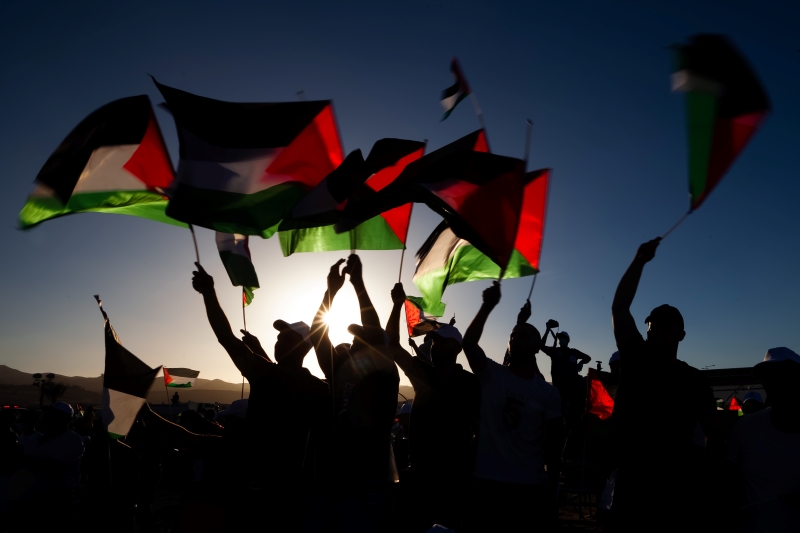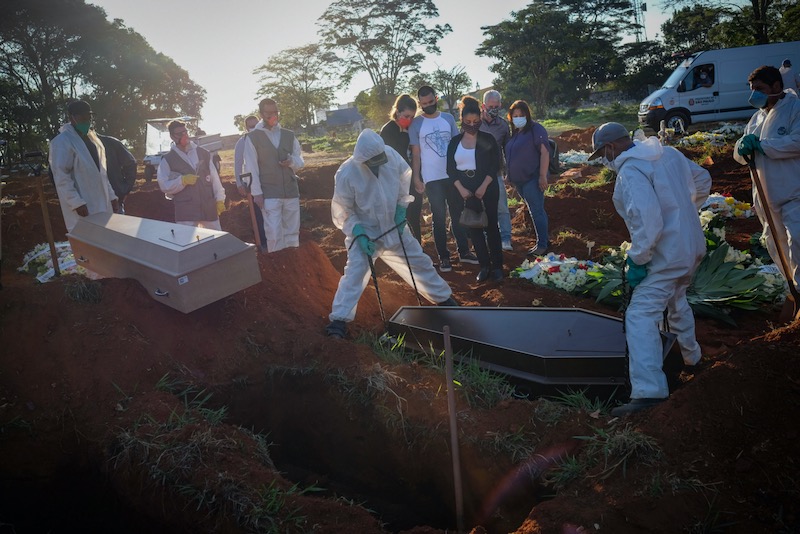“The coronavirus pandemic “is huge and everywhere in Latin America” reports the head of Cafod’s Latin America Department, Clare Dixon. She told The Tablet this week that, amidst great inequality, “poor communities are suffering terribly from the virus, but also from a livelihoods crisis and hunger”. Brazil, Peru, Chile, Mexico and Ecuador are among the Latin America countries that have seen widespread outbreaks.
Brazil recently became only the second country in the world, after the US, to confirm more than one million cases of Covid-19 and the country’s death toll is now over 50,000. President Jair Bolsonaro has consistently downplayed the risks of the virus and prioritised the economy in his decision-making.
Cafod partners are engaging closely with local municipal governments who are dealing directly with affected communities. “With 210 million people in Brazil, and crowded slums and cities the infection rate is very high” Clare said, “with Sao Paulo having the highest concentration of cases”. In the communities in which Cafod works, most people live from the informal economy. The pandemic has significantly reduced their income, and many people have no income at all. “The delivery of basic food baskets is necessary to support families through patchy government lockdown measures and disruptions to all forms of informal work (street sellers, maids, refuse collectors, etc) as the economy nosedives into crisis.
The north-east of Brazil, one of its poorest regions, is amongst the worst affected by Covid infections and hunger, which has been exacerbated by weak health systems, pre-existing economic crisis, climate change and attacks on social (health, education, welfare) and labour rights.
Farmera, accompanied by Cafod partner the Pastoral Land Commission (CPT) of Paraiba, are donating their unsold agroecological produce to poor families in neighbouring towns and communities. Since March, food markets have been shut and farmers have been unable to sell their food as usual, but with CPT’s support the farmers have successfully lobbied state and municipal governments to fund an emergency food procurement programme destined for families going hungry due to the Covid economic crisis. The farmers have supplied this programme with 40 tonnes of agroecological produce. Thousands of families have benefitted from access to healthy nutritious food and farmers’ livelihoods have been protected.
In São Paulo, Cafod partners are working closely with local authorities to organise distribution of food and hygiene items, with more than 12,000 parcels distributed to date, and to provide information to poor urban communities and homeless people.
Those living in favelas, tenements and street homeless people are particularly at risk from Covid infection due to overcrowding and poor ventilation, poor access to healthcare and underlying health problems. Black and mixed-race people are the most affected, with those living in the poorest neighbourhoods 10 times more likely to die of Covid than those in the richest. According to one study carried out by a Cafod partner in favela Vila Prudente in May, one in three households had someone with chronic illness, one in three had someone who had lost their job due to the crisis, whilst one in four said they had had no income at all. As a result, people don’t have money to buy food, hygiene items and other basic necessities.
The Amazon rainforest covers nine countries, but 60 percent is in Brazil. Clare reported that in Roraima, Cafod is concerned about indigenous groups, particularly the Yanomami. Tens of thousands of miners are going into the Amazon rainforest, with mineral extraction, logging and cattle raising all disrupting the way of life of indigenous communities. These communities have little power to stop illegal people invading their land, often with heavy engineering equipment.
Also, the people live communally and don’t have the capacity to social distance; access to personal protection equipment (PPE) is very limited. Many have put up sanitary barriers outside their villages, and are only allowing essential services to enter in an attempt to halt the spread of the virus. Community members are being asked to stay at home, meaning that they cannot go to local towns to buy and sell their goods. This is leading to major concerns about food shortages. A Cafod partner has been delivering food baskets, hygiene kits and PPE to ensure that people have enough to eat and are able to safely isolate in their communities.
In May, three Catholic leaders issued a joint statement calling for “urgent and unified action to avoid a humanitarian and environmental tragedy” in the Amazon region. Brazilian Cardinal Claudo Hummes, Peruvian Cardinal Pedro Barreto Jimeno and Mauricio Lopez, executive secretary of the Pan-Amazonian Church Network wrote: “A tremendous force, on a scale never seen before, is devastating Amazonia in two dimensions that combine in a brutal manner: the Covid-19 pandemic, which engulfs the most vulnerable, and the uncontrolled increase in violence in the territories. The pain and the lament of peoples and the earth mold into a single cry.”
In Peru, most people cannot access the $300 one-off grant offered by the government because they don’t have bank accounts. Those who received it have spent it over the past ten weeks and people are out on streets again looking for work and income as construction workers, street vendors or other types of day labourers. Peruvian President Martin Vizcarra says the pandemic has revealed the weakness of the Peruvian system, which topped Latin America in economic growth for decades but has one of region's weakest social safety nets. “We're far from being an example of efficiency as a state,” he said. “We have so many failings, so many problems.”
In Chile, the government response has been poor, with the economy put ahead of the impact on people’s health. Nicaragua is a country practising herd immunity and the government has not imposed the social distancing measures adopted throughout the region and recommended by international health organisations. Churches are closed but the government has encouraged religious processions. CAFOD has reported many people being ill in partner organisations. A large number of doctors have died and there are rumours of secret burials at night.



 Loading ...
Loading ...